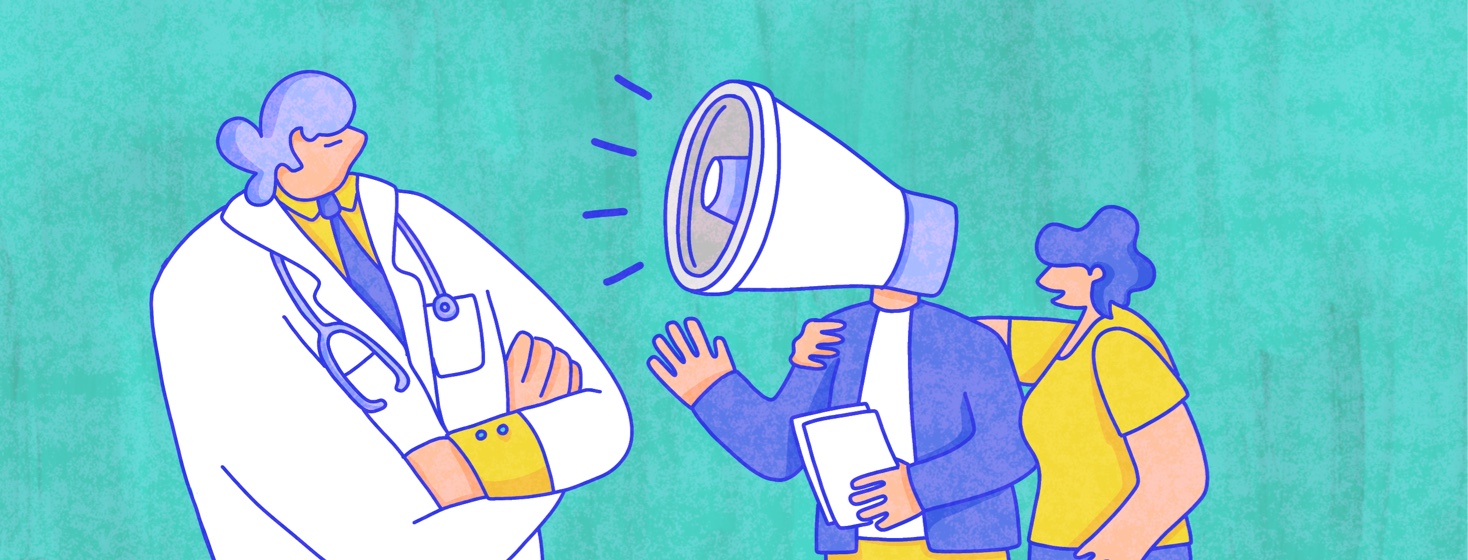How I Became a Caregiver While Being a Patient
Cancer isn't a gift but it has been a teacher.
I’ve learned more about cancer, terminology, research, and clinical trials than most healthy people will forget. Nine years of being in the thick of living with metastatic breast cancer I have acquired quite the education. As much as I wish I didn’t have this knowledge, I have to admit has been invaluable to me.
Hearing the word cancer for the first time after living the majority of your life relatively healthy, is an unthinkable position to be in. Cancer can become a dirty secret you don’t want to talk about with anyone.
Putting the education of cancer to work
People of a certain age and generation rely on their specialists/doctors completely; at least in my situation. Important questions can go without being asked not realizing there ARE questions to ask.
Information can get lost or not communicated at all. It's not uncommon to be afraid to ask the doctors questions, after all the medical professionals are the experts. They know what’s best, right?
My own diagnosis puts me in a unique position. I am able to look at test results with a certain amount of understanding. I am able to ask the “why’s,” to inquire if additional tests or labs would be something to consider.
There are experts I have connections with and friends in the cancer world that have been very helpful. They are a far more valuable resource than any Google search can ever be.
Caregving while being a patient
Selfishly, it feels so good to be able to offer this support to the two people that have always been there for me, my parents. It wasn’t easy for them to give in to my suggestions, for example: being present at appointments as a caregiver.
It was only recently that I was handed lab results and asked what it all meant. My parents now have a better understanding of test results.
I am able to see and interpret results. Jotting down notes ahead of and while at appointments has been very helpful.
Asking if a PET scan is necessary or if there is a specific tumor marker that can be monitored on a regular basis aren’t questions someone would ask if they’re new to it all.
At my dad's last appointment, I inquired about both a PET scan and markers. His doctor explained that a PET was not necessary at this point. He did end up ordering a CT to check nearby organs and lymph nodes. Ultimately, the CT revealed an infection that wasn’t yet symptomatic.
It proved to be exactly what was needed. Constructive dialogue and active participation with doctors is imperative to receiving the proper care.
Those conversations have allowed my parents to take a bit of control back when it was ripped away after hearing the word cancer.
Informed caregivers are not always welcome
Unfortunately, there can be doctors that don’t like being asked questions. My mom had a surgeon that didn't care for the questions I asked him.
It was clear he felt offended. It was important to understand his plan (or rather why there was NO plan at all). The first time he performed a lumpectomy and sent her on her way.
She was there again for the same reason, so what was his treatment plan this time around. Maybe there was research he could share with us.
The surgeon asked me what I felt was appropriate. Ultimately he agreed that an aromatase inhibitor was appropriate. My mom has been on Afinitor for two years and doing well.
There is no way to know if an aromatase inhibitor would have prevented that second breast cancer. Personally, I feel her odds are much better now.
Giving back
I don’t want anyone to feel defeated after learning they have a serious illness - especially my parents.
I want my parents to feel empowered when it comes to their health; to be informed, patients. They now understand how important it is to ask questions instead of just nodding their heads in silence.
My dad’s mood has shifted since having his blessing to move into more of a caregiver role. He is more relaxed. He is not as reclusive. I can only assume it’s because he doesn’t feel alone in this cancer thing.
That's the best gift I can give both of my parents.

Join the conversation